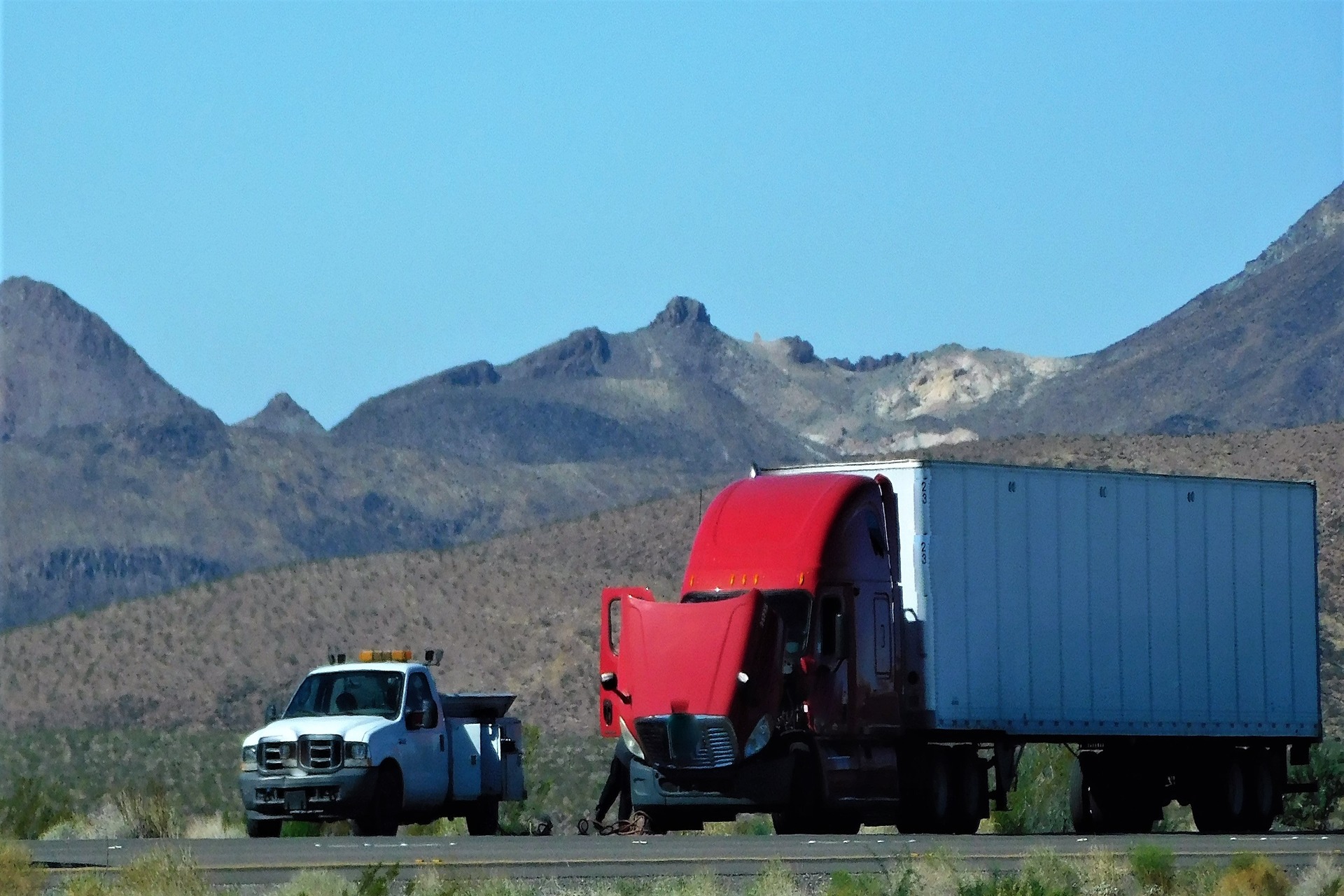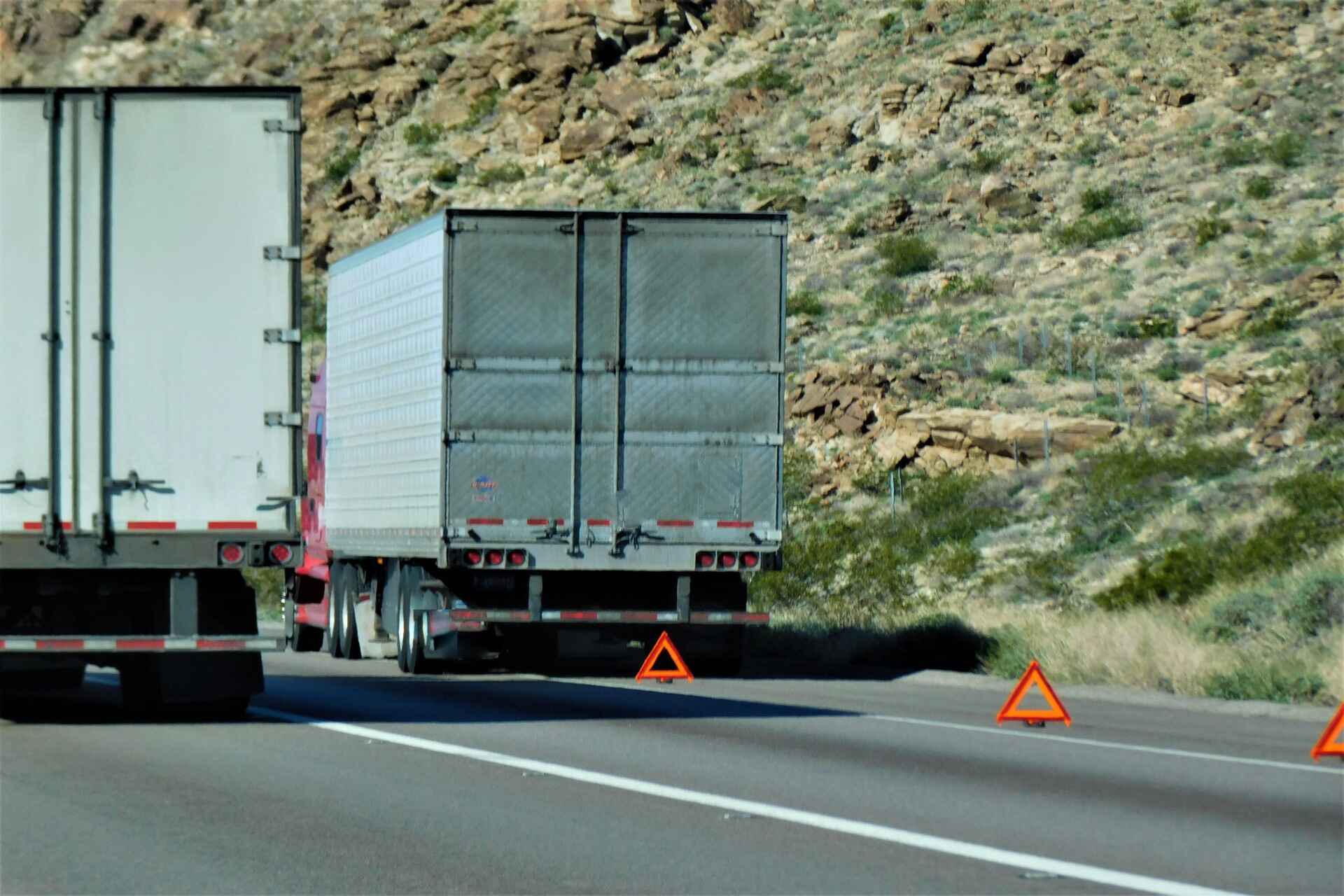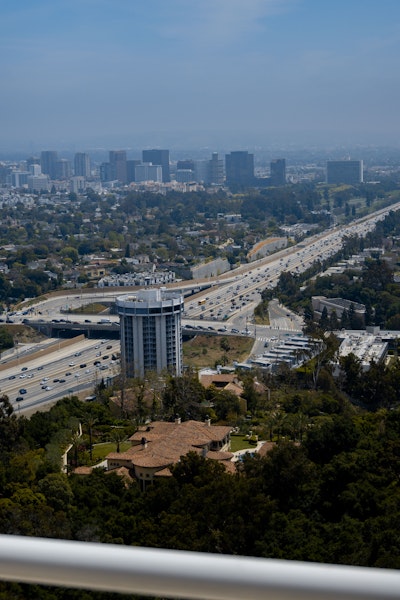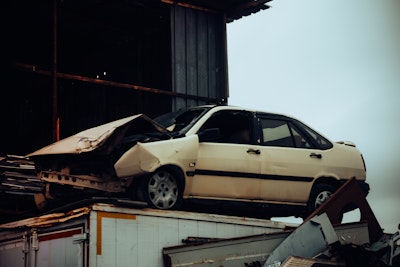Commercial Truck Accident Liability in California: Who is Liable?

Truck accident liability often involves multiple parties, each with distinct responsibilities that may contribute to the crash:
- The trailer owner
- The truck driver
- The trucking company
- At-fault truck driver vs. trucking company
- The cargo loaders or shippers
- The truck manufacturer or parts manufacturer
- Third-party maintenance providers
- Government entities
- Multiple parties may share liability
California’s liability laws, including comparative negligence and strict liability, further complicate these cases. Identifying all potential factors and theories of liability is vital for pursuing fair compensation and ensuring no accountable party is overlooked.
The following factors and entities may play a role in determining liability:
- Comparative Liability in California
- Legal theories of liability
- Statute of limitations (California CCP § 335.1)
- Federal and state safety standards
Our California truck accident lawyer is here to fight for your rights—contact us today for a free consultation!
Who is liable in a truck accident in California?
Determining liability in a truck accident can be complex due to the involvement of multiple parties. Unlike typical car accidents, commercial truck accidents often include trucking companies, drivers, and even third-party contractors.
Below, we outline the key factors and entities that may hold liability in a truck accident case in California:
The trailer owner
Trailer owners have a responsibility to ensure their equipment is properly maintained and complies with safety standards, such as functioning signals, reflective markings, and underride guards to prevent vehicles from sliding underneath the trailer in a collision.
If the trailer’s safety features are faulty or not maintained, the trailer owner could be held liable for the accident. For example, a trailer with defective signals or brake lights could lead to rear-end collisions.
Our legal team investigates ownership records, maintenance logs, and compliance with safety regulations to establish whether the trailer owner’s negligence contributed to the crash.
The truck driver
Truck drivers have a legal duty of care to operate their vehicles responsibly and avoid causing harm to others on the road. This duty includes obeying traffic laws, staying alert, and ensuring the safe operation of their truck to avoid negligent behaviors, such as:
- Distracted driving (e.g., texting, eating, or daydreaming).
- Speeding or reckless driving.
- Driving under the influence of drugs or alcohol.
- Fatigue or violating federal Hours of Service (HOS) regulations.
- Failing to perform required vehicle inspections.
California Vehicle Code 21702 specifically limits truck drivers to 12 consecutive hours of driving within a 24-hour period. Violating these regulations constitutes negligence and can be a key factor in establishing fault. Driver activity logs and black box data are critical pieces of evidence, and if access to this information is denied, our court orders may be required to secure it.
Additional reading: Huntington Beach truck accident lawyer
The trucking company
Under the legal concept of “vicarious liability,” trucking companies can be held accountable for accidents caused by their drivers while performing their job duties. However, companies can also be directly liable for their own negligent practices, which may include:
- Hiring unqualified or poorly trained drivers.
- Failing to enforce safety protocols or monitor compliance with Hours of Service (HOS) regulations.
- Neglecting routine vehicle maintenance and inspections.
- Pressuring drivers to meet tight deadlines, leads to unsafe practices like speeding or driving fatigued.
- Overloading vehicles or improperly securing cargo.
In some cases, trucking companies may falsify records, such as driver logs or maintenance reports, to conceal violations. This reckless behavior can result in punitive damages. Pursuing claims against both the driver and the company ensures all sources of compensation are explored, particularly in cases involving severe injuries or multiple parties.
Additional reading: sue a truck company
At-fault truck driver vs. trucking company
Truck drivers may be directly responsible for accidents due to negligence, such as speeding or distracted driving. However, trucking companies often share liability through systemic issues like inadequate training or maintenance failures. Pursuing claims against both ensure all sources of compensation are explored.
The cargo loaders or shippers
If cargo shifts during transit, exceeds weight limits, or involves hazardous materials that are mishandled, the liability may fall on the cargo owner, shipper, or loader. For example, spilled chemicals from improperly secured hazardous materials can cause multi-vehicle collisions, while an overloaded trailer can lead to rollovers or brake failure.
Cargo owners and suppliers are required to comply with strict federal and state regulations regarding cargo loading, weight distribution, and the handling of dangerous goods. Subpoenaing records from these parties is often necessary to determine whether these regulations were followed.
Additionally, many cargo owners carry specific insurance policies that may come into play in a claim.
Our team investigates the role of cargo loaders and suppliers by reviewing shipping records, weight tickets, and load manifests.
Additional reading: truck driver negligence
The truck manufacturer or parts manufacturer
Mechanical failures, such as faulty brakes, tire blowouts, or defective cargo straps, can cause serious accidents. California’s strict liability law holds manufacturers accountable for defects in their products, regardless of whether negligence played a role. Examples of defects that may lead to liability include:
- Brake malfunctions.
- Faulty tires or coupling systems.
- Defective engine or transmission parts.
If a defective product contributed to an accident, injured victims can pursue compensation from the manufacturer, distributor, or other entities involved in the product’s supply chain.

Third-party maintenance providers
Many trucking companies outsource vehicle maintenance to third-party providers. If a maintenance company fails to perform necessary inspections or repairs, it can be held liable for accidents resulting from mechanical failures.
Specific examples include neglected brake checks, worn tire replacements, or failure to address engine or transmission issues. Substandard repairs or the use of defective parts, such as faulty brakes or tires prone to blowouts, can significantly increase the risk of accidents.
Establishing liability often involves examining maintenance logs, service records, and the chain of responsibility for repairs.
Government entities
Poor road conditions, such as broken pavement, unclear or missing signage, inadequate lighting, or unsafe road designs, can play a significant role in causing truck accidents. For example, poorly maintained roads may lead to tire blowouts, while missing signage or inadequate lighting can contribute to collisions in low-visibility areas.
In such cases, liability may fall on the local or state government responsible for maintaining the roadway.
Additionally, contractors hired by the government to perform roadwork may share liability if their negligence, such as failing to mark construction zones properly, contributed to the accident. Filing a claim against a government entity in California requires adhering to strict deadlines and procedures, making prompt legal action key to preserving your right to compensation.
Multiple parties may share liability
Truck accidents often involve more than one liable party, which can significantly complicate the process of seeking compensation. For example, a negligent truck driver, an improperly maintained vehicle, and a cargo loader that failed to secure a shipment may all contribute to the same accident.
Each of these parties may have their insurance policies and legal teams, making it challenging to handle the claims process.
Pursuing compensation from multiple parties requires a thorough investigation to determine fault and establish evidence for each claim. Our knowledgeable legal team at Feher Law understands how to manage these complexities, ensuring no responsible party is overlooked.
We handle negotiations with insurers, coordinate evidence collection, and advocate for maximum compensation, helping you focus on recovery while we handle the legal details.
Prompt legal action may be necessary to secure court orders for trucking company records—contact our San Bernardino truck accident lawyer to help you secure the compensation you deserve—call now!
California laws and factors impacting truck accident liability
California’s legal framework plays a key role in determining fault and liability in truck accidents. These laws shape how claims are handled and establish specific safety standards for trucking companies and drivers to reduce the risk of accidents:
Comparative Liability in California
California follows a comparative negligence system, which means that fault can be shared among multiple parties involved in an accident. Even if a victim is partially responsible for the crash, they can still recover compensation. However, their damages will be reduced by their percentage of fault.
For example, if a victim is found to be 20% at fault, their total compensation will be reduced by 20%. This system allows victims to seek compensation even when liability is not entirely on the other party, but navigating comparative liability claims requires careful legal expertise.
Legal theories of liability
Truck accident liability is typically based on two legal theories: negligence and strict liability.
- Negligence: To prove negligence, a victim must demonstrate that the at-fault party owed a duty of care, breached that duty through their actions or inactions, and caused damages as a result. This applies to truck drivers, trucking companies, and others who may have contributed to the accident.
- Strict liability: Under strict liability, parties such as manufacturers can be held accountable for defective products that caused the accident, regardless of whether they acted negligently. This applies to issues like faulty brakes, defective tires, or malfunctioning parts.
Statute of limitations (California CCP § 335.1)
Under California law, victims of truck accidents generally have two years from the date of the accident to file a personal injury or wrongful death lawsuit. Missing this deadline can result in losing your right to seek compensation, making prompt legal action vital.
Federal and state safety standards
Trucking companies and drivers in California must comply with strict federal and state regulations designed to enhance safety and reduce the risk of accidents. Key requirements include:
- Hours of Service (HOS) regulations to prevent driver fatigue.
- Weight and cargo limits to ensure safe transportation and prevent rollovers.
- Routine vehicle inspections and maintenance to keep trucks roadworthy.
- Driver qualification standards to ensure only properly trained and licensed drivers are on the road.
Violations of these regulations can serve as strong evidence of negligence and significantly strengthen your case.
Additional reading: when to consult a lawyer for a truck accident
Our legal team investigates compliance with these laws to hold responsible parties accountable and maximize your compensation. Speak with our Torrance truck accident lawyer today and take the first step toward justice.
Unsure how to proceed with a truck accident claim? Contact Feher Law for expert legal advice
At Feher Law, we have a proven track record of securing substantial verdicts for truck accident victims:
- $1,700,000: Verdict in Marquez vs. OB Trucking for a truck crash in Long Beach resulting in back and neck injuries.
- $1,500,000: Verdict in Mendez vs. Go Express, LLC for a truck crash in Fresno causing a back injury.
Our proficient California truck accident lawyers are here to guide you through every step of the claims process, ensuring you receive the compensation you deserve. Contact us today for a free case assessment:
Reach out to us and let Feher Law advocate for your rights and help you achieve the best possible outcome for your case.
FAQs
How is fault determined in an accident?
Fault in a truck accident is determined by analyzing evidence such as crash scene photos, black box data, and witness statements. California’s comparative negligence laws allow for shared fault, meaning each party’s liability is assessed as a percentage that impacts the final compensation awarded.
What can I sue for in a truck accident?
Victims of truck accidents can sue for a range of damages, including medical bills, lost wages, vehicle repair or replacement, pain and suffering, and emotional distress. In cases involving fatalities, wrongful death damages may also be pursued for funeral costs and loss of companionship.
How much are most truck accident settlements?
The average truck accident settlement in California can vary widely, often landing between $100,000 and $1.5 million or more. Factors like injury severity, liability, and long-term losses affect the amount. Learn more about potential truck accident injury compensation.
Related Posts

Nine Injured in Los Angeles Metro Train SUV Collision

Two Injured in San Diego Multi-Car Accident

Suspect Hospitalized After Hollywood LAPD Pursuit Crash

Four Injured in Downtown Los Angeles Crash

Pedestrians Injured in LA Sidewalk Crash




